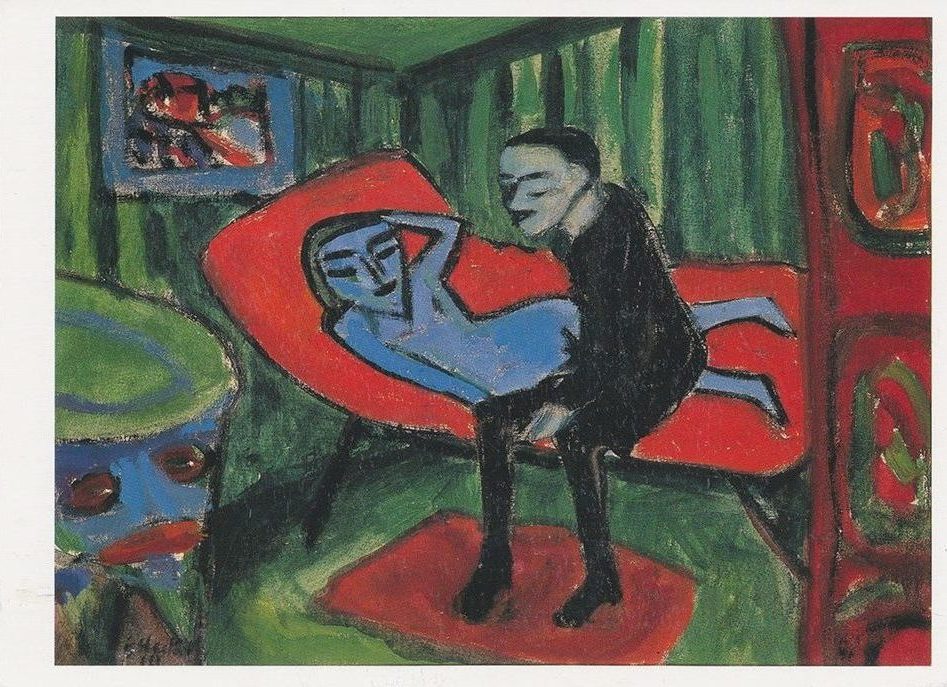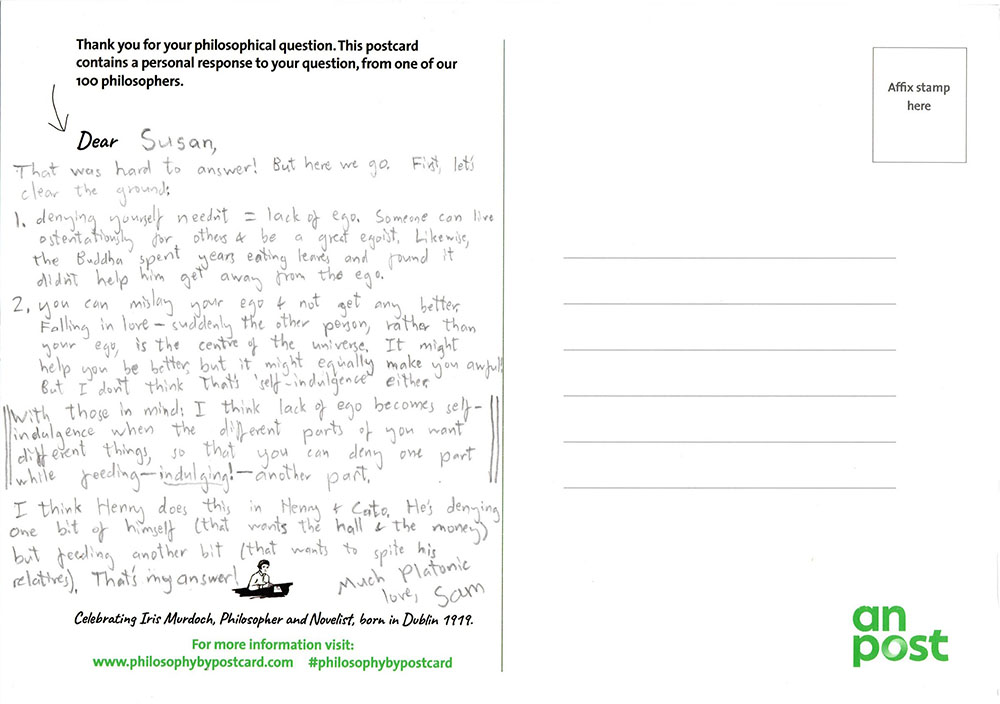My question: when does lack of ego become self-indulgence?
Dear Susan,
That was hard to answer! But here we go. First let’s clear the ground:
1. denying yourself needn’t = lack of ego. Someone can live ostentatiously for others & be a great egoist. Likewise, the Buddha spent years eating leaves and found it didn’t help him get away from the ego.
2. You can mislay your ego + not get any better. Falling in love – suddenly the other person – rather than your ego, is the centre of the universe. It might help you be better, but it might equally make you awful. But I don’t think that’s ‘self-indulgence’ either.
With those in mind: I think lack of ego becomes self-indulgence when the different parts of you want different things, so that you can deny one part while feeding – indulging! – another part.
I think Henry does this in Henry + Cato. He’s denying one bit of himself (that wants the hall & the money) but feeding another bit (that wants to spite his relatives).
That’s my answer!
Much Platonic love, Sam
Samuel Cooper
Liverpool, UK
By combining a Platonic metaphysics that put love and the Good at the centre of ethics with some clear ideas about what that meant in terms of everyday experience, reading Murdoch greatly extended my idea of what ethics could be and completely changed the focus of my work and study.




